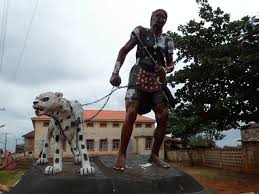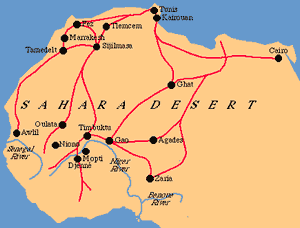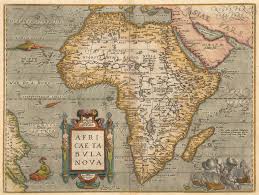The History of Aro, the Founder of Ilaro Town

The History of Aro, the Founder of Ilaro Town
Discover the history of Aro, the legendary founder of Ilaro Town, and his enduring legacy in shaping the cultural and political identity of the Yewa people in southwestern Nigeria.
Ilaro, a historic town in present-day Ogun State, Nigeria, traces its origins to Aro, a legendary warrior, hunter, and ruler in Yorubaland. Aro migrated from Oyo in the 18th century to settle in Igbo Aje, a strategic hill at the heart of what would later become Ilaro. This elevated position allowed him and his warriors to monitor and repel frequent attacks, primarily from slave traders of the neighboring Dahomey kingdom, now known as the Benin Republic.
The Founding of Ilaro
The name "Ilaro" originates from "Ilu Aro," meaning "the settlement of Aro." Over time, it evolved into "Ilaro" for easier pronunciation. The town flourished with skilled farmers, hunters, and warriors, among whom Orona and Osata became notable figures in Ilaro's history.
Aro’s reign was marked by his heroic resistance against external invasions. His bravery in defending his people made him a revered leader, and his legacy continues to be honored by the Ilaro people. Apart from restoring peace, Aro demonstrated his supernatural power when, in his old age, he entered the ground with his leopard, Amotekun, instructing his people to summon him in times of trouble by pulling the chain attached to them.
The Orona Shrine and Festival
The site where Aro and his leopard disappeared into the ground is now the Orona Shrine. This sacred location has been renovated for historical and tourism purposes and serves as the venue for the coronation of every new traditional ruler of Ilaro.
In honor of Aro, the Orona Festival is celebrated annually in Ilaro. This festival preserves the town's rich cultural heritage and attracts both locals and tourists. The week-long festivities in November include:
- Street Carnivals
- Masquerade Performances
- Cultural Beauty Pageants
- Traditional Dances
- Talent Hunts
- Medical Outreach Programs
The festival stands as a testament to the bravery and legacy of Aro, reinforcing the deep cultural roots of the Ilaro people.
Ilaro’s Role in the Nigerian Civil War and Contributions to Literature
Beyond its rich precolonial history, Ilaro played a significant role in modern Nigerian history, serving as the headquarters of the Egbado land during the Nigerian Civil War. The town produced notable military figures such as Major General Olurin, Brigadier General Samuel Adegoriola Oniyide, Major Onifade, and Major Ibikunle Armstrong.
In the realm of literature, Ilaro is home to the renowned Yoruba writer, Prof. Afolabi Olabimitan, who authored classics such as Kekere Ekun (1967) and Ta lo p’omo Oba? His contributions to Yoruba literature have left a lasting impact on the cultural landscape of Nigeria.
Culture and Traditions of Ilaro
Ilaro is deeply rooted in Yoruba traditions, with cultural expressions such as the Bolojo and Gelede dances. The Gelede dance, known for its satirical and corrective messages, is a key feature of Ilaro’s cultural life. The Adebowale and Atolagbe families of Ona-Otun and Isale Idiroko are known for their craftsmanship in carving the masks and costumes for these performances.
Among the various cultural celebrations in Ilaro are:
- Egungun Masquerade Festival (lasting up to three months)
- Oro Festival
- Ogun Festival (dedicated to the god of iron and war)
- Sango Festival (honoring the Yoruba god of thunder)
- Elegbara, Alamuwa, Iya Ala, Igbala, and Igunuko Festivals
The Geography and Infrastructure of Ilaro
Ilaro is strategically located with key rivers such as Odo Ela, Odo Ogburu, Odo Yewa, and Odo Oniru, which serve both agricultural and domestic purposes. The town also has notable farmlands in locations like Oke Ela, Igbo Igbin, Olorunda, and Ijado.
The town had early interactions with European missionaries, with historical figures such as Lord Lugard and Mary Slessor reportedly visiting. The longest street in Ilaro, Leslie Street, is named after the missionary J. Leslie in recognition of the missionaries' contributions to the town’s development.
Ilaro’s Influence on Nigerian Film and Media
Ilaro has also made its mark in the Nigerian entertainment industry. A well-known Yoruba film actor, Taiwo Hassan, popularly known as Ogogo, was born and raised in Ilaro. Many Ilaro indigenes use the appellation "Ogogo 'kulodo" or "Ogogo T'alujofe" to trace their ancestry back to their historical roots in Oyo.
Conclusion
The story of Aro, the founder of Ilaro, is one of courage, leadership, and cultural preservation. His legacy is celebrated through the Orona Festival, and his impact extends beyond the town’s borders, influencing Nigeria’s military history, literature, and cultural traditions. Today, Ilaro remains a vibrant town, balancing its historical significance with modern development while maintaining its deep-rooted traditions.
A visit to Ilaro offers a journey through history, culture, and heritage, making it a must-see destination for history enthusiasts and tourists alike.


